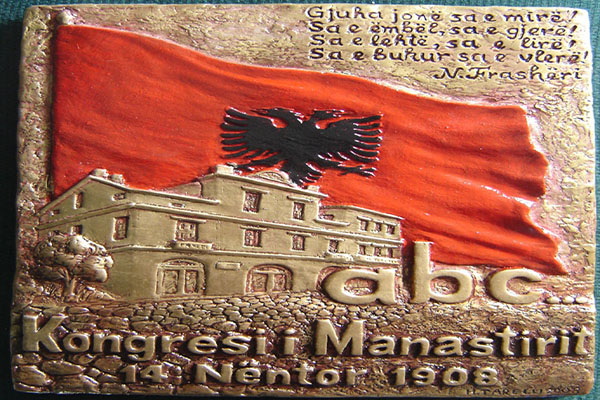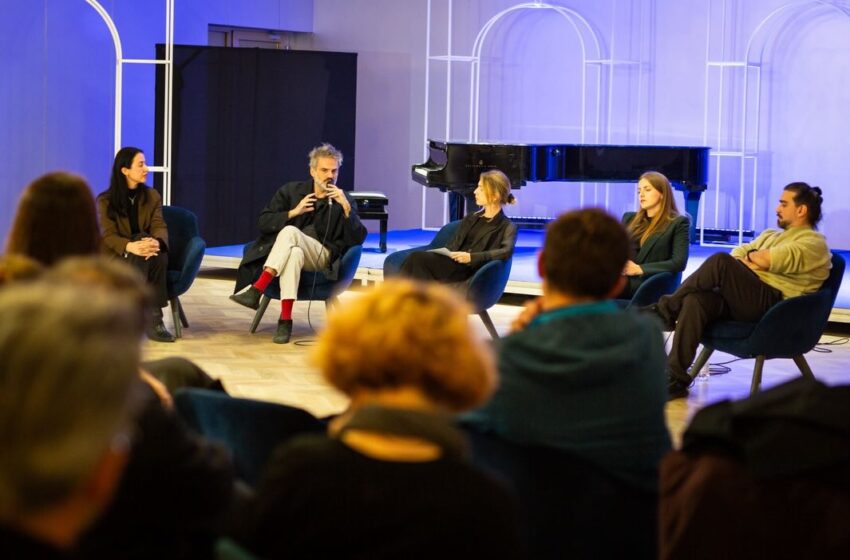Albania celebrates Alphabet Day: a pivotal moment for national identity

On November 22, Albanians commemorate Alphabet Day, marking the historic Congress of Manastir in 1908, when the Albanian alphabet was standardized. This enormously important event not only unified a fragmented language but also symbolized Albania’s commitment to a Western and European orientation after nearly five centuries under Ottoman rule. Remarkably, Albania became the first Muslim-majority nation—though its population also includes Bektashi, Orthodox Christians, Catholics, and a small Protestant community—to adopt a Latin-based alphabet.
Why is this important: The adoption of a Latin-based alphabet was a historic and strategic decision for Albanians. It unified a people divided by geography, religion, and dialects, ensuring that the language could become the foundation of national identity. It was also a bold cultural and political statement, aligning Albania with the modern, European world rather than the Ottoman traditions they were leaving behind.
For a Muslim-majority nation, this decision reflected a remarkable openness and forward-thinking vision. It marked a turning point where cultural progress became the basis for political emancipation. By creating a standardized alphabet, the Congress provided Albanians with the tools to develop their literature, education system, and press, which were essential in mobilizing for independence and resisting external pressures from neighboring states.
Language as a unifying force: For Albanians, divided by religion but united by language, the Congress of Manastir (present day Bitola, North Macedonia) was much more than a linguistic decision—it was an act of national unity. Language served as the thread that held together a diverse population spread across the Balkans and beyond. In a nation where religious differences could have deepened divisions, the shared language became the foundation of a collective identity. It is no coincidence that Albanians often say: “We won our freedom with the pen and the rifle.”
The Congress highlighted the central role of the Albanian language as a unifying force. By choosing a Latin-based alphabet, Albania signaled its intention to align with European values and modernity, breaking away from Ottoman cultural and political traditions.
Mithat Frashëri’s vision: The Congress of Manastir, held from November 14 to 22, 1908 gathered delegates from 26 cities and communities. Delegates included intellectuals, educators, and activists who sought to end the confusion caused by multiple scripts—Arabic, Greek, Cyrillic, and others—then in use. The Congress adopted the Latin script, modified to suit Albanian phonetics, as the standard.
Mithat Frashëri, chair of the Congress, eloquently underscored its importance:
“This question of the alphabet must be the beginning of our great work. Without a unified alphabet, we cannot achieve our higher goals for the prosperity of our language, and without our language, we cannot achieve the prosperity of our nation.”
His words reflected the delegates’ belief that a unified language was essential to national progress and cultural survival.
A step toward independence: The Congress of Manastir was a cornerstone of the Albanian national movement, paving the way for the declaration of independence in 1912. At a time when the Albanian people faced cultural and territorial pressures from neighboring states, the creation of a unified alphabet was a bold assertion of their identity and aspirations. It demonstrated the ability of a multi-religious population to come together for a common purpose and reinforced the idea of a shared national destiny.
Legacy of Alphabet Day: Today, Alphabet Day is celebrated as a national holiday in Albania, Kosovo, and among the Albanian diaspora. It is also recognized in North Macedonia, where the Congress took place. The day serves as a powerful reminder of the role of language in uniting a nation and preserving its identity. The decision made in 1908 continues to resonate as a symbol of Albania’s resilience, progress, and European orientation.
By unifying their alphabet, Albanians reinforced the role of their language as the cornerstone of national identity, bridging religious and regional divides. It remains a testament to the enduring power of cultural and intellectual leadership in shaping the destiny of a nation.


